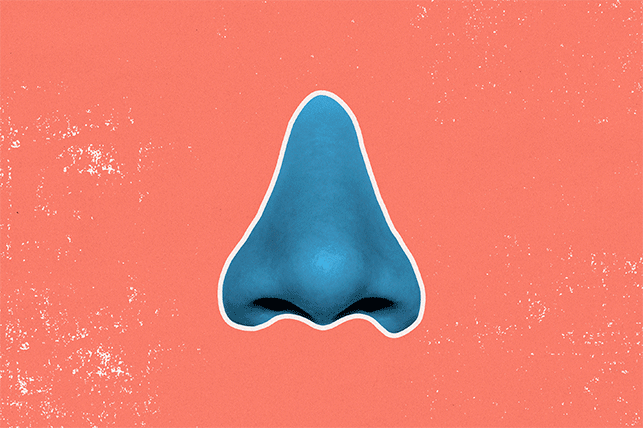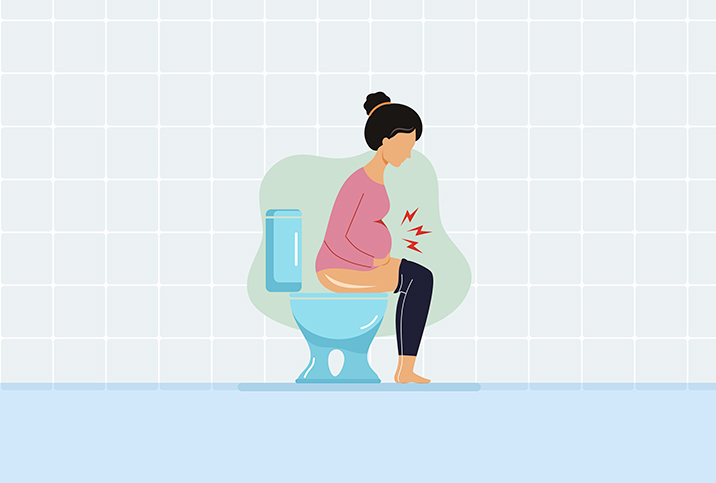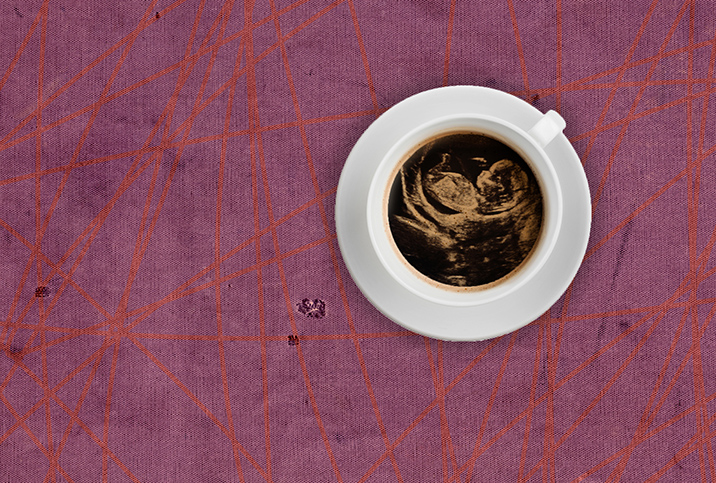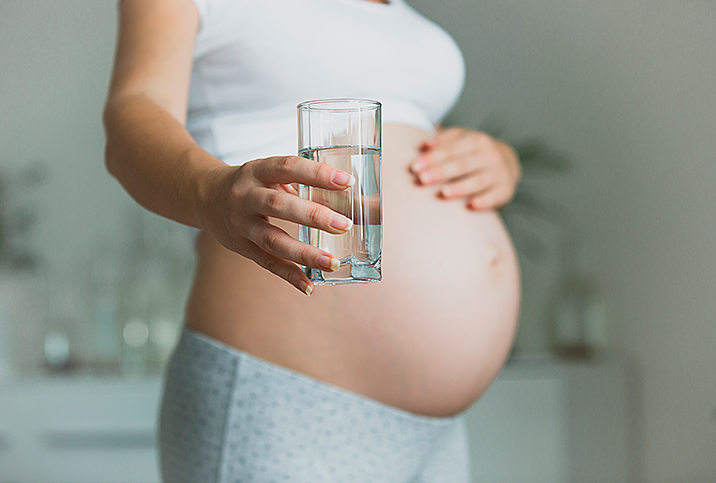Is 'Pregnancy Nose' a Thing?

When Chrissy Teigen was pregnant with her second child, she noticed an unusual symptom. In addition to the familiar swollen feet and nausea, the model found her nose had also swollen to a larger-than-normal size.
"Damn my pregnancy nose is huge," Teigen posted on Twitter in 2018. "My nose has its own BMI. How you gonna gain weight in your nose. This is fascinating."
Teigen wasn't the first person to experience so-called pregnancy nose, a phenomenon where the nose swells due to extra fluid and hormonal changes during pregnancy. But Teigen did help jump-start the online conversation about a lesser-known pregnancy side effect.
Now, nearly five years later, the hashtag "pregnancy nose" is trending on TikTok, where expectant moms are posting before-and-after videos of their nonpregnant and pregnant selves. And, sure enough, most videos demonstrate noticeable nose growth.
"I'm traumatized and barely recognize my nose anymore," TikTok user anumrubec wrote.
"My nose was alreadyyyy big," taydaddie moaned.
"Don't worry it goes back," user julieyamz chimed in.
What is 'pregnancy nose'?
Social media is an iffy-at-best, disastrous-at-worst place to get health advice, but in this case, Teigen and the TikTok users were right on the nose, so to speak. Medical professionals confirm that pregnancy nose is a thing.
"Pregnancy is a time of hormonal flux resulting in physiologic changes of various body parts, the nose being one of them," explained Kecia Gaither, M.D., board-certified in OB-GYN and maternal-fetal medicine and director of perinatal services/maternal-fetal medicine at NYC Health + Hospitals/Lincoln in the Bronx in New York City.
During pregnancy, edema—a medical term for swelling caused by extra fluid—and a hormonally mediated increase in blood flow can change the shape of the nose, making it appear wider, Gaither explained.
"The change doesn't happen to all women," she noted. "For those in which it does, the nose typically returns to its original size and shape within two to three months after giving birth."
In addition to growing bigger, the nose may become congested or runny during pregnancy, Gaither added. This inflammation of the mucosa is known as "pregnancy rhinitis."
To relieve pregnancy rhinitis symptoms, Gaither suggested trying remedies such as cranking up a humidifier, using nasal spray or elevating your head.
When to talk to your doctor
In some cases, quick or excessive swelling might be signs of preeclampsia, a pregnancy complication that causes high blood pressure.
"Rapid or significant swelling that may occur in the face, hands and feet may be related to preeclampsia," Eran Bornstein, M.D., the vice chair of OB-GYN at Lenox Hill Hospital in New York City, recently told Today. "Patients that have significant swelling and experience symptoms, such as headache, blurry vision, abdominal pain or nausea/vomiting, should contact their provider immediately to be evaluated for preeclampsia."
Even though nose swelling and pregnancy rhinitis are usually nothing to worry about, it's good practice to update your doctor on the symptoms you experience when you're expecting. If anything seems unusual or off during your pregnancy, reach out to your OB-GYN.


















